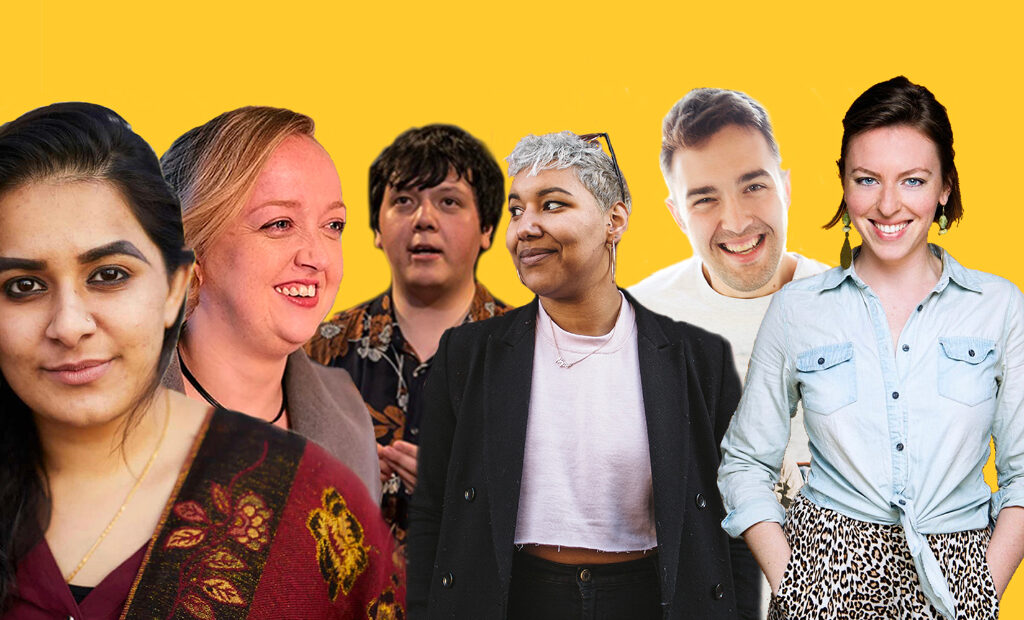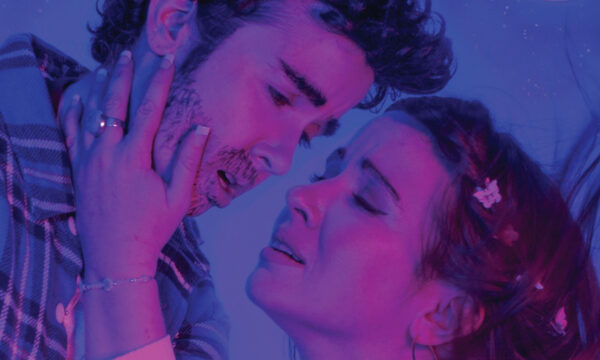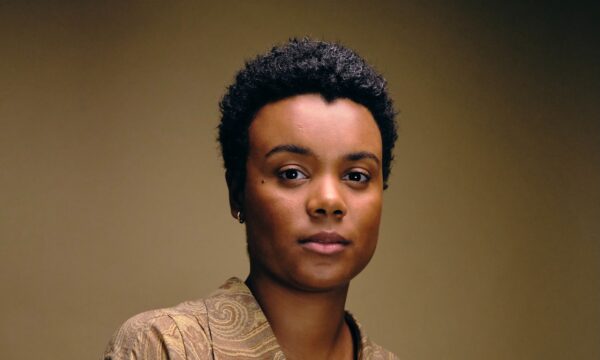“Digital work can have brilliant, accessible possibilities”: Hack Theatre director Michelle Sewell on their new project, UNMUTE

Michelle Sewell is the artistic director of Hack Theatre and, like many of us, she is experiencing the unprecedented disruption brought about by the coronavirus. As a response to the way Covid19 is affecting every aspect of life, her company have collaborated with six international writers and performers to create UNMUTE, a bold new series of accessible short films that look at how the arts can become more inclusive for all irrespective of disability, race, gender, sexuality, class or financial inequality, and, pertinently, how to “digitise but not disenfranchise”.
We caught up with Michelle just as UNMUTE was going live to talk about all things theatre: what she’s done in the past, what she’s doing in the present and where she hopes to go in the future.
For those who may not know it, what is Hack Theatre and what kind of work does it produce?
So, Hack Theatre was formed after I finished my Masters in Scriptwriting at the University of East Anglia. I was sponsored by the university to start up a theatre company which championed marginalised voices in the regions. I have been working really closely with the Norwich Arts Centre and the University of East Anglia over the past couple of years to develop work that is inclusive. The company created Border Control, a show about migrants and refugees which incorporated both a performance and panel debate, and also the one-woman show Dysney Disfunction – which toured to Edinburgh – about sexual abuse. I’m now being supported by HighTide as part of their Lighthouse Programme during Covid-19.
What was the impetus behind creating UNMUTE? How did the conversation begin?
We normally hear from organisations and institutions about how they are being affected during lockdown, and rarely from individual artists – especially those who might be emerging or mid-career. Speaking to artists and giving time to them seems a much more positive approach as it enables us to see them being creative in different ways – and we are inspired by them to be creative in different ways in our own lockdown world. I felt as though we needed to connect during isolation, and I wanted to provide a platform to try to achieve some form of connectivity from a range of artists from different backgrounds and of different nationalities. These videos really show that not everyone has been creative in the same way, and that for many the focus has been much more about pausing and wellbeing – which itself has been so positive and affirming.
A fantastic, international range of artists have contributed to UNMUTE, from Olivier-nominated Athena Stevens to published poet Sean Wai Keung – how did these artists get involved? How have their experiences of inequality and disenfranchisement tied into UNMUTE?
The artists are all really inspiring people who I’ve either studied with, worked with or seen work by. They are people who work really hard and are always working on their craft. All the artists have very similar outlooks to those that Hack Theatre strives to achieve through its work. They champion diverse voices, they all make socio-political work and present different viewpoints of the world we live in. These different viewpoints are so essential in a changing world where we are all trying to adapt and learn new ways of living.
At the time of recording, independent artists weren’t being listened to. This has marginally changed with government support, but at the time of making these videos, it felt very different.
We are hoping to continue the conversation and the series and are encouraging artists to get involved by tweeting in how they are being creative. We are already looking to see who we could interview next time
A defining theme of the UNMUTE films is accessibility: each film is 30 minutes long, available for free, and they are fully captioned. What inspired you to make these pieces so easily accessible? Do you think access to art and information is important?
It’s essential. Access to art and information is a right of every person and if we exclude people from our art, that’s because as a society we automatically exclude certain communities and individuals. I’m still learning how to make my work more accessible and I’ve been really fortunate to have difficult conversations with artists and audiences on how to be better at it. I think it’s our responsibility to not naively ignore access requirements, but to embrace and ask ourselves “what more can we do?”. We received Arts Council funding so have been able to make these available to watch for free – I’m really thankful to Arts Council for that.
I think my inspiration for accessibility has been my relationship with my sister, who has Down Syndrome. She’s always been my anchor, my number one supporter and my biggest critic too. Many artists say that they create theatre that they would want to see, but for me, I actually want to create theatre that my sister would want to see. She’s my target audience and I think that helps me be inspired and creative with my work.
After recent events, a lot of people are finally seeing how malicious and invisible discrimination can be. UNMUTE is challenging the idea that the industry’s “new normal” should be a “check-box exercise” in terms of equality: do you have any experience dealing with this in practice, and how would you like to see the arts move away from this mindset?
As a woman, I do sometimes feel as though I’m in a room and I’ve ticked a box. Tokenism is such a disingenuous and obvious thing which you really can’t hide from if you’re enabling it.
As Koko says in her interview, with specific regard to venues and organisations, “it’s not easy to change when you have built yourself on the foundations of white male playwrights, but no-one’s going to cry for you; just do it!”.
I would have liked UNMUTE to have featured more artists and I hope to do another series. As an emerging writer, with my company being so tiny – it’s just me! – I definitely feel as though my reach in this project was limited. We were only able to do six and there are so many more artists I hope to be able to reach out to now that I’ve had this platform and started this project. I reached out to the artists I really knew and whose work I love and I think that’s where we should start – by just meeting more artists and doing more as an artistic community and just finding the connection with people’s work. I think is one small step we can take that’s really positive. There’s more I want to do and for me, this really is only the beginning and I’m excited by the journey ahead – and I really welcome artists getting in touch.
One of the explicit goals of UNMUTE is to encourage access to disabled creatives and audiences; in your experience of making these pieces, do you feel the industry is still set up against disabled people, and what more can creatives do to facilitate their inclusion?
Limited funding, limited resources and the capacity of independent solo artists means that access is not always thought about enough or early on in an artist’s career. We should be taught this at school and it needs to be encouraged more and access requirements should be normalised. We really do need to look at the large organisations and venues who have the funding and the resources to lead the charge on this. I think every venue has the responsibility to have accessibility requirements including captioning facilities for all shows, and relaxed performances should be normalised.
There also needs to be a greater push for audiences to see work by D/deaf and disabled performers and writers. There are so many incredible shows and festivals, and this work is funny, political and innovative. I’m such a big fan of Athena’s work, which is why I wanted to include her in the video series. As a creative group, we need to be seeing more work from D/deaf and disabled artists and integrate access requirements into our shows so that this becomes the norm.
Also, whilst the videos are captioned, this does not take into consideration as broad a range of access requirements as I would like. Moving forwards, Hack will be exploring how to offer other forms of access such as BSL interpreted films, large print etc.
UNMUTE stresses a need to “digitise but not disenfranchise”; between the explosive popularity of Hamilton on Disney+ and the NT Live At Home series, many see the internet as the new home of the arts. Do you share this opinion, or do you think the industry will move away from online mediums again?
So I have a divisive answer to this, and quite annoyingly I think this should be both. I think it’s strange that in the industry we’re debating over whether things should be digital or live when it’s not possible to go into a theatre – the theatres are never going to permanently shut. That’s just not going to happen. They didn’t shut permanently with the plague or Spanish flu; they’re not going to now. But it’s our job and our challenge to think creatively about this.
Also, we have seen the potential for over 700,000 people to watch a National Theatre live show digitally. Theatres have been struggling for, well, forever really, financially and economically. If we are going to survive a recession we need to adapt and see the potential for revenue and to pay ourselves and continue to do the thing we love. This has shown real potential for those who want to embrace it. Because although I am all for creating digital work, it really doesn’t work for everyone and no-one needs to feel that pressure. We should be challenging how we are creating work digitally and that’s a really healthy discussion. But a blanket “no” is simply not possible and again excludes many who do not feel comfortable attending the theatre or who may need to isolate. For instance, in my interview with Sean, he talks to me about his friend who has anxiety in large crowds, but they can now enjoy watching shows together digitally. It really is a huge and complex issue, and I think that digital work is just another option which can have brilliant, accessible possibilities. Digital work is not the same as live, so it needs to not be seen as a competing thing. Event cinema and digital productions have a different quality. Digital also has its own accessibility issues, especially for those who do not have access to the internet or technology.
But I think it’s a game-changer and it requires important attention, conversation and debate.
As a companion piece to the UNMUTE films, Hack are also creating a new adaptation of George Bernard Shaw’s Pygmalion: Eliza. What motivated you into adapting this piece of literature? How does it reflect and tie into your work with UNMUTE?
I’ve always been really fascinated by Pygmalion. I think it’s the problematic concept of moulding someone to fit a specific ideal and “normal” that’s really intriguing. I’ve never really “fitted in” with whatever normal may look like and I certainly didn’t grow up in a “normal” family, and being a sister of disability, I was aware from an early age that if you are to fit in with “normal”, it simply excludes the majority of the population.
So, the piece feels really present and really important right now, to really give a voice to women with Down Syndrome. I’m working a lot with my sister back in Australia, with director Hana Pascal Keegan, actor Sarah Gordy and dramaturg Ben Weatherill, all via Zoom. It’s a real experiment. We will learn a lot, and it’s a unique opportunity to work with a group of people who are now dotted all over the UK, which would not be possible if circumstances were different. This feels like a really exciting process because I’ve not actually met any of the team (apart from my sister, of course) in real life. But the thing that really spurs us all on is this passion to create theatre that is new and is different and adaptable, especially in a Covid-19 world. I think that’s how it reflects and ties in with UNMUTE – it’s just about change, transformation and inclusivity and thinking creatively during a crisis.
UNMUTE, which was in part inspired by COVID-19’s debilitating effects, was supported by Arts Council England’s Emergency Response Fund – do you feel there has been enough support to artists during this time? What are your thoughts on the current state of the industry, now lock-down is being eased?
I think it’s too soon to tell. I’m very grateful that I was able to receive the ACE grant and that I’ve been able to use that money on projects that have gone to a bunch of artists and creatives, rather than on rehearsal room hire fees and transport, which often suck up limited budgets. I’m glad that as a group of creatives, we’ve been able to keep creativity going, but I think the industry is still in shock and I feel as though it will take a really long time to know exactly what the industry looks like.
What’s next for Hack Theatre? Will you move more into online spaces or, since theatres are reportedly set to be allowed to reopen in the next few weeks, will you look back towards live spaces?
For us, many of the artists we work with are still in lockdown. I am returning to Sydney to be with my sister who has been in lockdown for over four months now. She’s done amazingly during this time and I’m simply awe-inspired by how her community of people with disabilities have responded so pro-actively. I think there’s a real opportunity in the digital world and although I got into theatre to present it live, I think as artists we need to adapt to what our audiences and our communities need. Right now that platform is online, so I’ll be focussing on that for the next year. Whatever “safe to go back to the theatre” means, it might mean something very different for someone with a disability or someone who has a reason to be shielding. This is something that Hack will monitor, because given the kinds of work we make, we will not be returning to a space to make work until it is safe for everyone to be there.
Samuel Nicholls
Image: Courtesy of Hack Theatre
The fully captioned UNMUTE films and podcasts are available to access on Hack Theatre’s website.
Watch the trailer for UNMUTE here:

























Facebook
Twitter
Instagram
YouTube
RSS